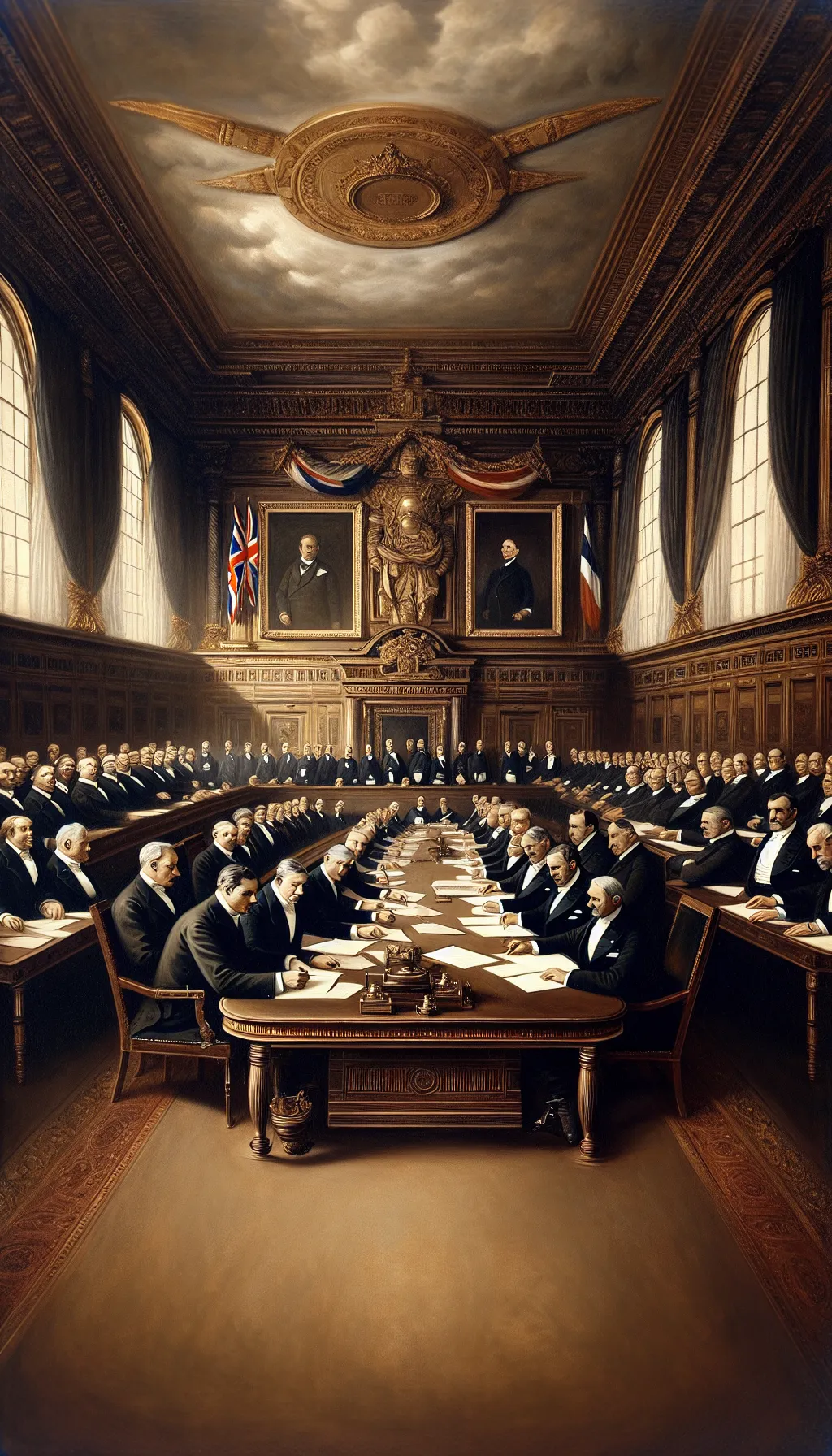United Kingdom – The Pragmatic Shift: The Entente Cordiale of 1904
TLDR;
- Event: The Entente Cordiale was signed on April 8, 1904, between the UK and France, resolving colonial disputes in Egypt and Morocco.
- Purpose: Aimed at easing tensions and establishing spheres of influence, it was a pragmatic rather than idealistic agreement.
- Impact: While not a formal military alliance initially, it laid the groundwork for future Anglo-French cooperation against common threats.
- Legacy: Marked a significant, though not complete, shift in centuries of Anglo-French rivalry, showcasing the power of diplomatic negotiation.
–
–
Story
In the grand halls of diplomacy, where whispers of war had long echoed, a new sound emerged on April 8th, 1904—a sound of pens scratching paper, sealing a pact that would mark a significant, though not total, shift in Anglo-French relations. The Entente Cordiale, a series of agreements between the United Kingdom and France, was a practical arrangement, primarily aimed at resolving colonial disputes rather than heralding an unbreakable peace.

For centuries, the English Channel had been a moat of animosity, separating two of Europe’s most powerful nations. From the Hundred Years’ War to the Napoleonic conflicts, the history between Britain and France was a tapestry woven with battles and bloodshed. Yet, as the 20th century unfolded, the necessity for a pragmatic approach to colonial and European tensions became apparent.
The world was indeed shifting, with new powers rising and old empires adjusting. While Germany’s growing influence was a concern, the immediate motivation for the Entente was to settle longstanding colonial disputes, such as those in Egypt and Morocco, rather than to form a military alliance against Germany.
The Entente Cordiale was born out of necessity, not idealism. It addressed specific colonial disputes and established spheres of influence, but its initial scope was limited. It was not a formal defensive alliance, and military cooperation would only develop later, in response to escalating tensions with Germany.
This agreement did not erase centuries of rivalry overnight, nor was it intended to set the stage for the alliances of the world wars directly. However, it represented a significant step in Anglo-French relations, laying a foundation that would, over time and under pressure from external threats, evolve into a closer partnership.
As the ink dried on that fateful day, a new chapter in diplomatic relations began. The Entente Cordiale was a testament to the power of pragmatic diplomacy, a reminder that even the deepest rivalries could be managed, if not entirely overcome, through negotiation and mutual interest.
–
| Would a different approach to diplomacy have changed the course of European history? |